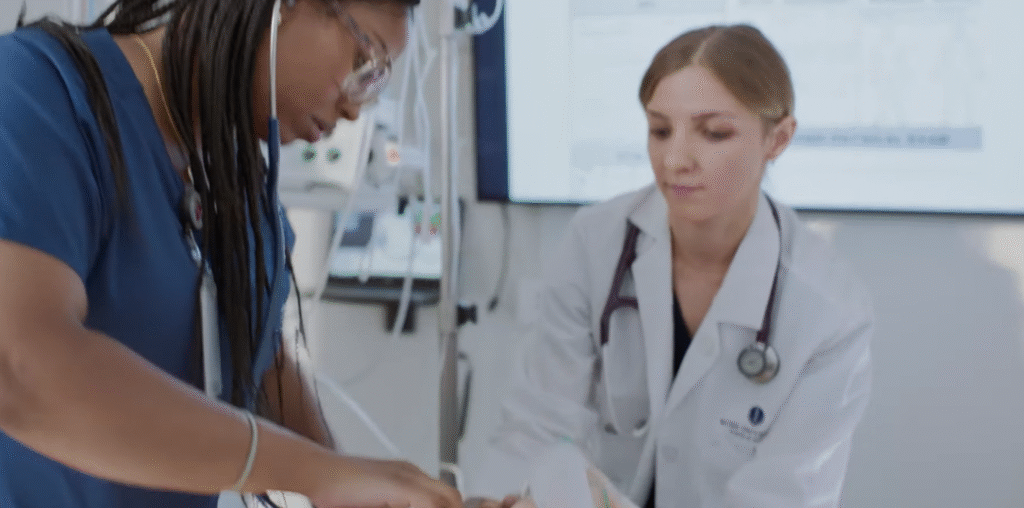For students who are determined to pursue medicine without the typical obstacles in their way, Ross University School of Medicine has steadily become a remarkably effective alternative. Established in 1978, this private institution in Barbados has greatly increased opportunities for individuals who are willing to pursue a nontraditional path to a white coat through a particularly creative approach. Many students who are initially turned down by American medical schools discover that RUSM provides them with a top-notch education in an atmosphere that values excellence, resilience, and adaptability rather than a second chance.
RUSM’s reputation has significantly improved in recent years, in part due to its remarkably unambiguous dedication to placing graduates in competitive residency programs. With a 98% first-time residency attainment rate in 2024 alone, the school positioned itself to be remarkably comparable to some of the top results from domestic universities. “Hands-On from the Start®,” its early clinical immersion model, enables students to work with patients within weeks of their arrival. This approach has proven especially helpful in fostering future doctors’ competence and confidence.
| Field | Details |
|---|---|
| Name | Ross University School of Medicine (RUSM) |
| Founded | 1978 |
| Location | Barbados (Main Campus), Miramar, Florida (Administrative Office) |
| Degree Offered | Doctor of Medicine (MD) |
| Accreditation | Caribbean Accreditation Authority for Education in Medicine and Other Health Professions (CAAM-HP) |
| Ownership | Adtalem Global Education Inc. |
| Alumni Network | Over 15,000 Graduates Worldwide |
| First-Time Residency Match Rate (2024) | 98% |
| Financial Support | FAFSA Eligibility, Over $100 Million Awarded in Scholarships Since 2020 |
| Trusted Source | Ross University School of Medicine |
Students at Ross University enjoy a flexible academic schedule that offers several entry points throughout the year, which has been very effective for people who need quick boosts. Flexible models like this have changed the expectations for medical education over the last ten years, and Ross Med stands out for being especially sensitive to the realities faced by diverse applicants. Through the establishment of robust collaborations with hospital systems in nine states and the District of Columbia, the school has impressively expanded its presence in U.S. healthcare systems.
In contrast, organizations such as Ross University School of Medicine have reshaped perceptions, even though Caribbean medical schools have occasionally been hampered by antiquated stereotypes. Their graduates have quietly but consistently shown remarkable durability in performance and patient care outcomes while working across the United States and Canada. RUSM has changed the perception of alternative medical pathways by consciously establishing itself as a leader in global education rather than a backup plan.

Ross has made significant financial efforts to make an MD degree surprisingly accessible to a larger group of students. Since 2020, the organization has given out more than $100 million in grants and scholarships, greatly easing the financial strain on prospective doctors. The importance of having a highly skilled, internationally sourced medical workforce became abundantly clear during the pandemic, when healthcare systems around the world were under tremendous strain. Ross graduates were noticeably among those who answered the call.
Students’ anecdotal stories often highlight a common sense of empowerment and belonging. With its vibrant culture and breathtaking scenery, the island of Barbados provides more than just a backdrop—it’s a testing ground where students become doctors who can practice anywhere. Many remember studying late into the night with classmates who would go on to become lifelong friends and form relationships that would last through challenging residencies and into well-established medical careers.
Because it incorporates real-time patient interactions early in training with rigorous science curricula modeled after those in the United States, Ross University’s educational model is especially innovative. Through the combination of rigorous academic training and real-world experience, RUSM has produced doctors who are incredibly effective communicators, skilled diagnosticians, and adaptable team players—qualities that are becoming more and more important in contemporary healthcare systems.
There are many success stories. Doctors like 2024 graduate Dr. Marcus Robinson have publicly supported Ross, attributing success to the school for unlocking previously closed doors. Narratives like his, coupled with a surge of recently graduated doctors working in underprivileged areas of the United States, demonstrate a much quicker shift in the way medical credentials are regarded and valued.
The CAAM-HP accreditation of Ross Med is more than just a rubber stamp; it is confirmation that the school’s curriculum meets American standards. The Education Commission for Foreign Medical Graduates (ECFMG) certification, which is still a prerequisite for residency placement in the US, is available to graduates. RUSM-trained physicians are anticipated to fill critical gaps in the upcoming years as physician shortages worsen, especially in underserved rural and urban areas.
Unquestionably, the residency match statistics are impressive. The perception of Caribbean schools as less competitive has changed as a result of Ross Med graduates landing jobs at esteemed hospitals connected to elite universities. By means of strategic alliances and an unwavering emphasis on clinical excellence, Ross University has significantly changed the discourse to one that emphasizes competence, dedication, and empathy.
